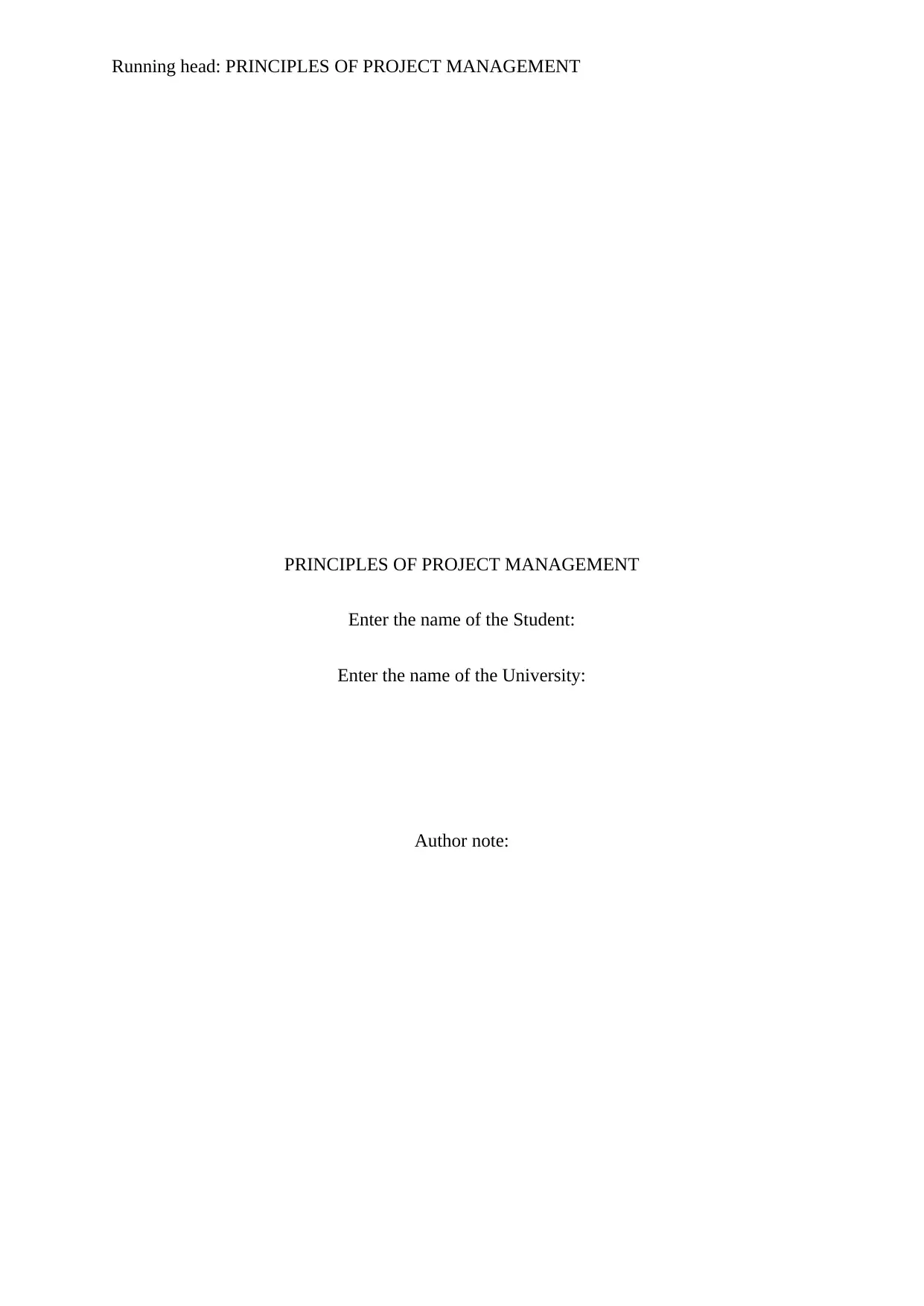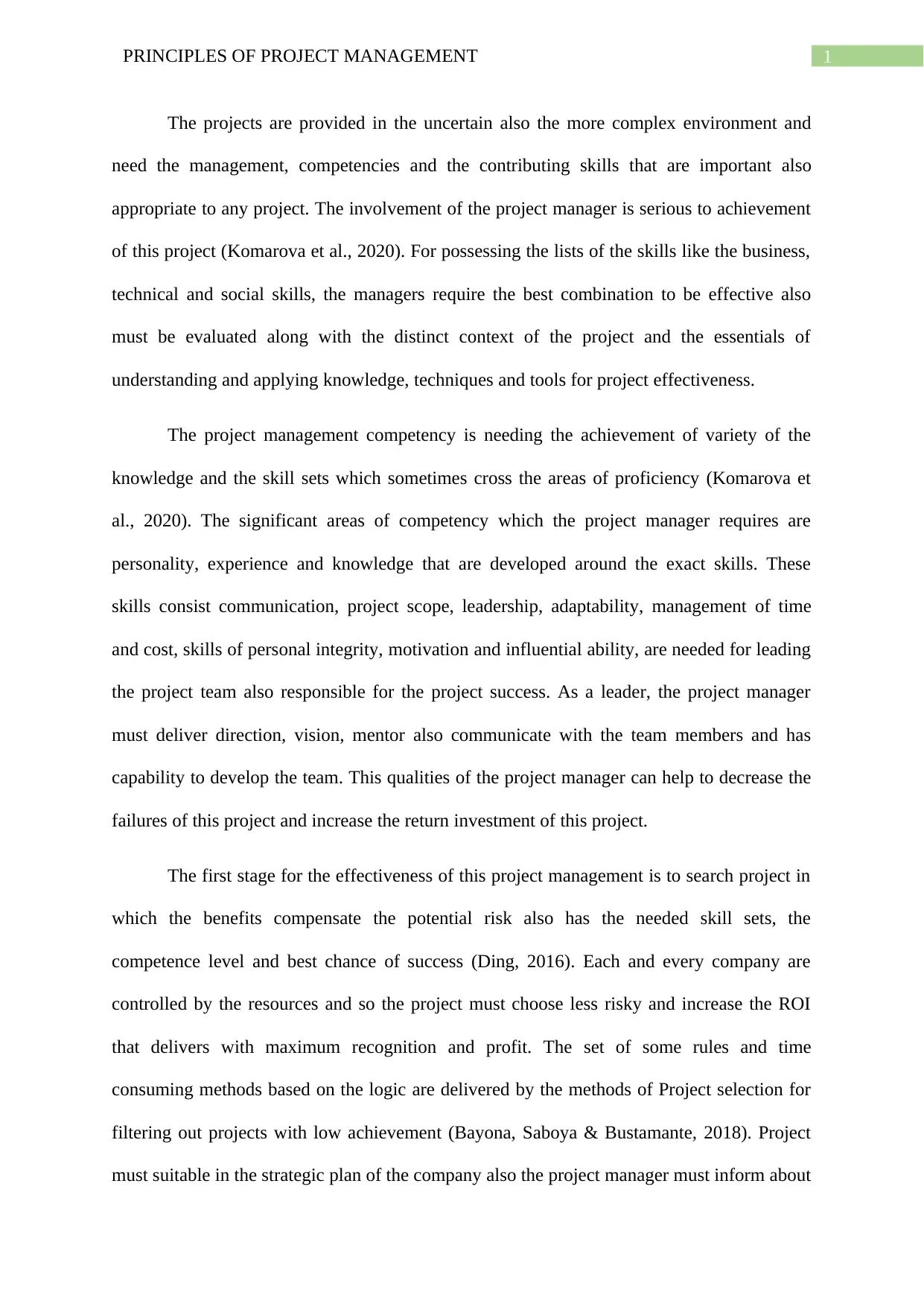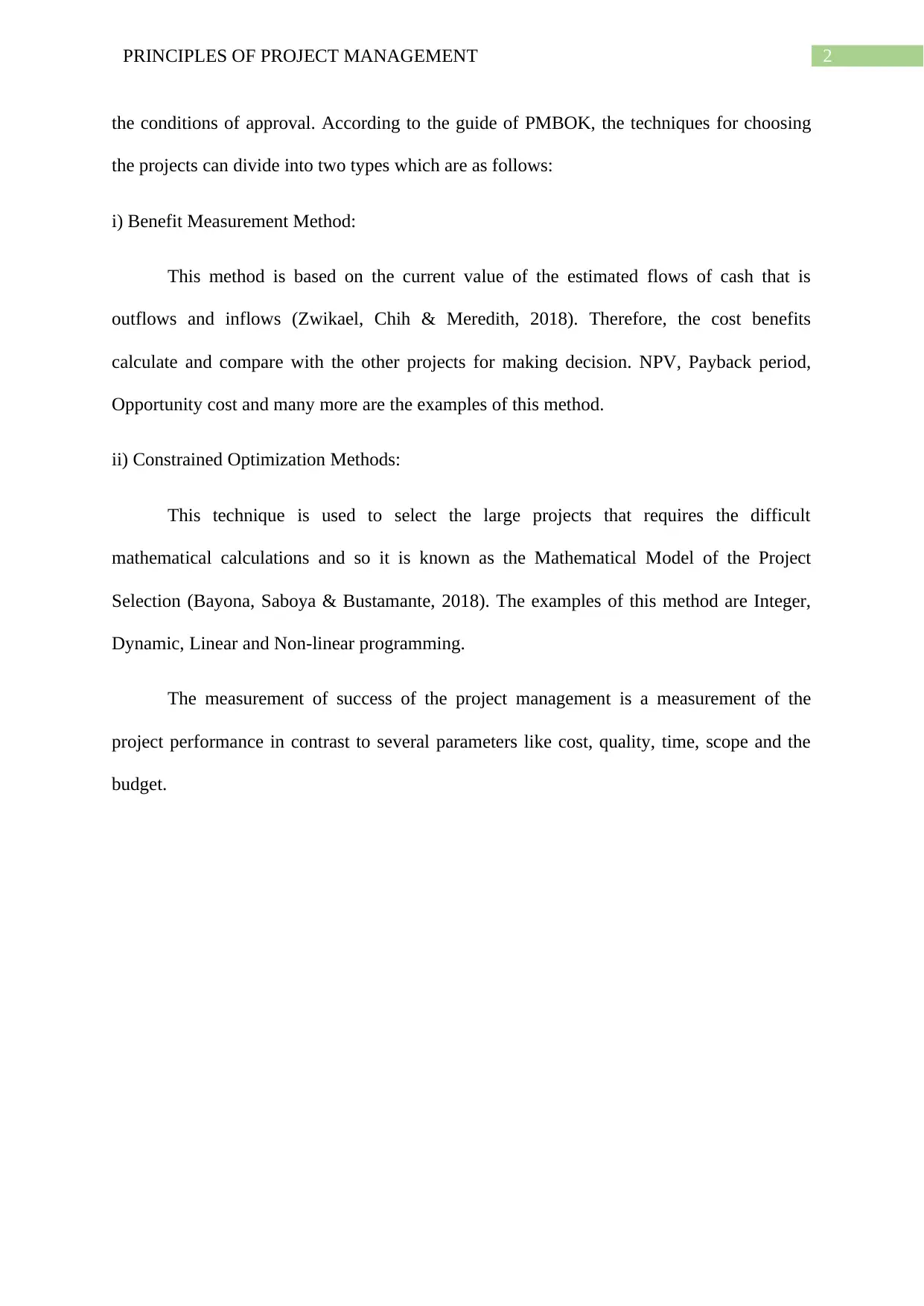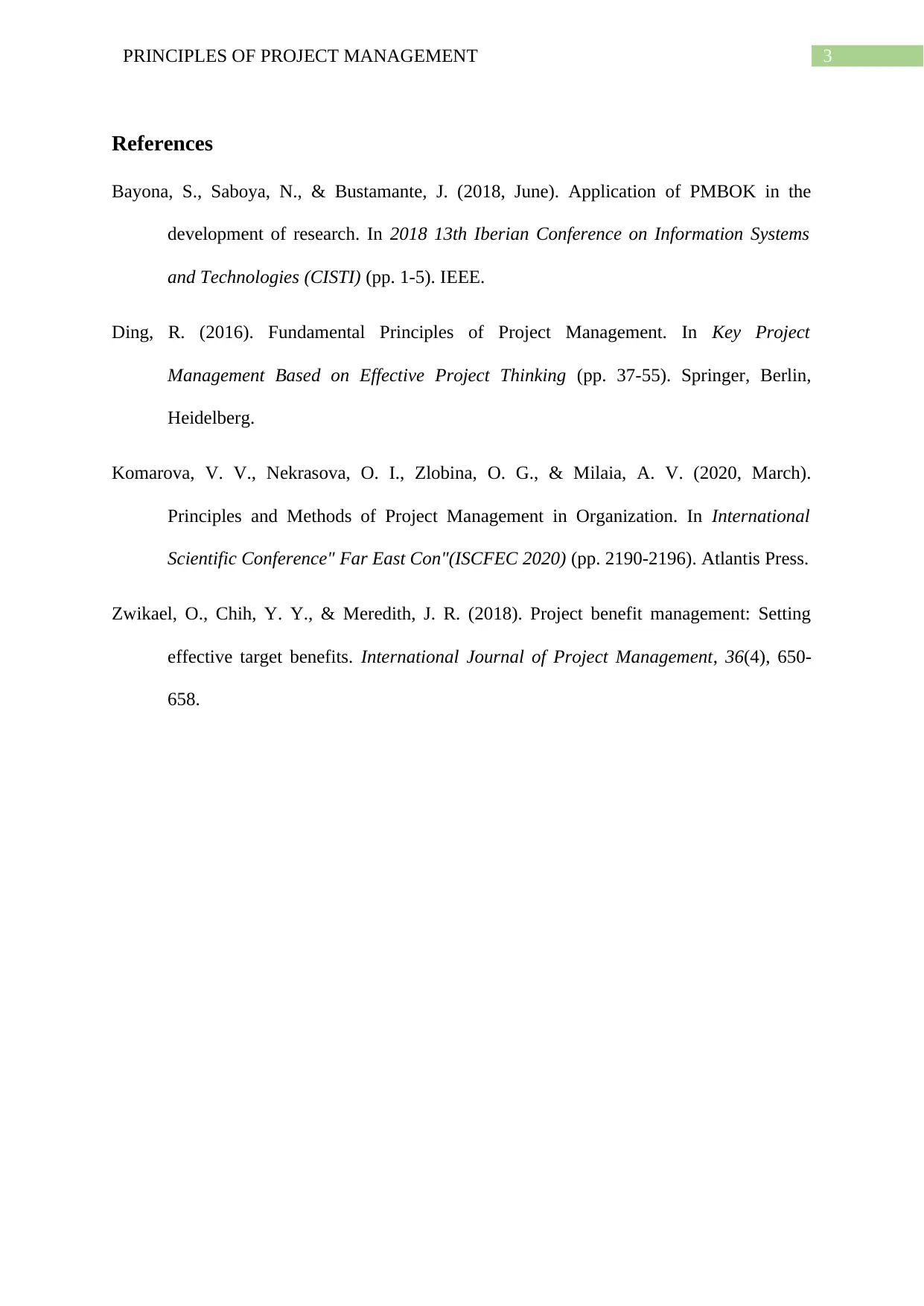PROJ6000: Principles of Project Management - Discussion Topic Analysis
VerifiedAdded on 2022/09/01
|4
|788
|22
Discussion Board Post
AI Summary
This discussion post for PROJ6000, Principles of Project Management, explores the critical aspects of project management competencies and project selection methods. The author emphasizes the importance of project managers possessing a combination of business, technical, and social skills, and the necessity of aligning these skills with the project's context. The post highlights the Project Management Body of Knowledge (PMBOK) as a standard for project management, crucial for standardization and preventing project failures. It also discusses PMI's code of ethics (honesty, responsibility, fairness, and respect) and the two main project selection methods: Benefit Measurement and Constrained Optimization. The author underscores the significance of selecting projects that align with a company's strategic plan and maximize ROI, and the role of PMBOK in guiding project management teams through risk management and standardized procedures.
1 out of 4











![[object Object]](/_next/static/media/star-bottom.7253800d.svg)